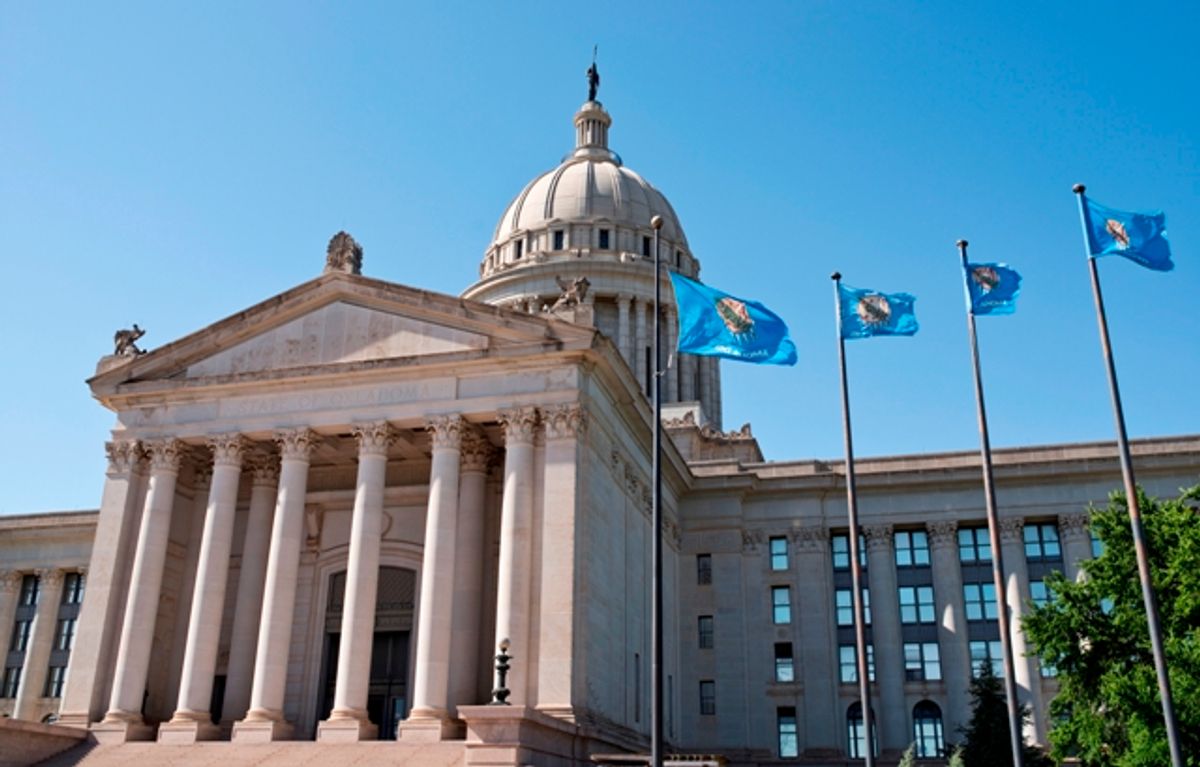by Bailey Ashbaker, Senior Policy Analyst and Engagement Specialist, and Jessica Dietrich, Director of Government Relations and Public Policy
State Updates
The temperatures may be freezing but things are heating up in the food policy world! The deadline for the introduction of Senate and House Bills and Joint Resolutions was January 18, and February 5, the first day of the 59th Legislature, rapidly approaches. Not only that, but Governor Stitt has called for another special session, specifically to vote on a 0.25 income tax reduction.
HFO’s policy team has begun sifting through the 4,000 plus bills that will be eligible to be heard this session and bring you a comprehensive summary of legislation that could impact hunger in our state. At a glance, a few of these bills include:
New Legislation:
- SB 1363, Sen. Garvin: Creates the Thrive Act which provides lunch cost reimbursement to schools with a high percentage of students on free or reduced-price lunch waivers and directs the Dept. of Education to report on the results.
- SB 1473, Sen. Garvin: Directs the Dept. of Agriculture to create a farm to school grant program for farmers to provide fresh produce for school districts.
- SB 1220, Sen. Hicks: No-cost meals to students who are from a household with income below 250% FPL.
- SB 1324, Sen. Thompson: Creates optional electronic universal application for free or reduced-price lunches available online.
Carryover Legislation:
- HB 1376 Rep. Boatman, Sen. Garvin: Requires school districts to provide certain students living within a range of the poverty line free school meals.
- HB 1885 Rep. Waldron, Sen. Hicks: Creates the Healthy School Meals for All Act which directs schools to provide free breakfast and lunch to students.
- HB 2727 Rep. Menz: Requires the Legislature to appropriate sufficient funds to the National School Lunch Program and for the State Board of Education to apportion funds to districts to provide meals for no cost at all to children.
Save the Date!
Do you want to activate your advocacy on anti-hunger issues this legislative session? Mark your calendars to join Regional Food Bank of Oklahoma, Food Bank of Eastern Oklahoma, and Hunger Free Oklahoma for our 2024 Anti-Hunger Day at the Capitol April 22. Registration information will be available soon.
Non-Congregate Meals and Summer EBT 2024
The USDA released an Interim Final Rule (IFR) providing additional guidance on Summer EBT and non-congregate eligibility for sites operating the Summer Food Service Program (SFSP), also known as summer meals.
Non-congregate summer meal sites allow children who live in rural areas to consume meals off site, often through the grab-n-go model, rather than being required to sit down for congregate meal service. This model allows more flexibility for parents/guardians and children who may have to commute longer distances to reach a meal site and enables many more meal sites to operate that would not have been able to accommodate congregate feeding. After consulting with stakeholders across the country, USDA provided additional eligibility that expands upon definitions of rural area eligibility and program operations for non-congregate summer meal sites. Highlights from this guidance include:
- USDA now requires that the state agency must not deny a summer meals sponsor’s application based solely on the sponsor’s intent to provide a non-congregate meal service.
- Rural designation has been expanded/made more flexible.
- USDA is allowing states to use multiple classification schemes, like Rural Urban Commuting Areas (RUCA), Urban Influence Codes (UIC), National Center for Education Statistics, (NCES) classifications and other data sources on a case-by-case basis with FNS approval. No Kid Hungry posted a helpful article breaking down these classifications and providing a sample map here. USDA has stated it will release an updated rural designation map as well.
- Schools in rural areas have the option to enroll as non-congregate schools for the summer operating period.
- State agencies have the flexibility to determine ranges of “areas with no congregate meal service” regarding the approval of non-congregate meal site applications.
- The rule codifies the option for summer meal sponsors in good standing to allow parents or guardians to pick up program meals on behalf of eligible children, with state agency approval.
- Have a question that we didn’t answer? You can read the full Interim Final Rule here, or feel free to send our policy team an email.
Summer EBT
The state unfortunately did not opt-in to Summer EBT for summer 2024, though several Native Nations are operating the program in their jurisdictional areas for both qualifying Tribal and non-Tribal members alike. According to the USDA, to date, 35 states, Washington, D.C., 4 territories, and 4 Native Nations have indicated they plan to operate the program in summer 2024. More detailed plans are due to the USDA by 2/15/24.
Federal Updates
Congress has yet to finalize a budget for the 2024 federal fiscal year, which runs October 1, 2023 – September 30, 2024. In December, Congress passed a “stepped” continuing resolution funding some portions of the government through January 19, 2024, and the remaining portions of the government through February 2, 2024. Currently, Congress is working on another short-term extension through early March with the hope that the FY 2024 budget can be finalized by then.
Two key priorities we are watching that will hopefully be included in the final FY 2024 package are an increased amount of funding for WIC and a bipartisan Child Tax Credit expansion. If additional WIC funding is not secured, program administrators may need to place program applicants on a waitlist for benefits.
Due to this new FY 2024 budget timeline, action on the Farm Bill will most likely be pushed to December 2024 or potentially into 2025. Though disappointing, no Farm Bill is better than a harmful Farm Bill.
Join our newsletter to receive these updates and more via email.
Visit www.hungerfreeok.org/join-newsletter to sign up!

